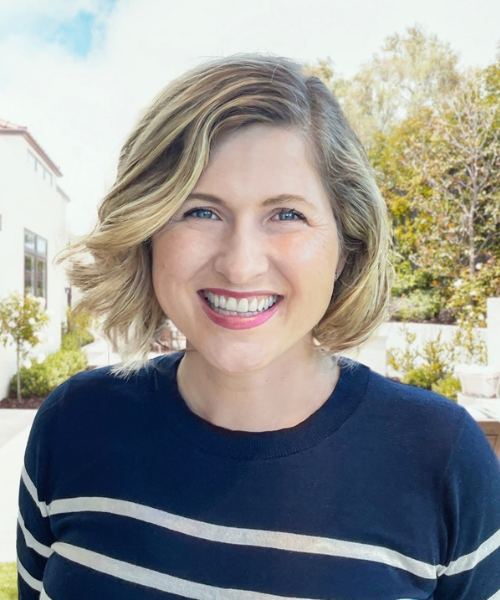
by Crystal Frommert
“Quite often the best PD is the teacher down the hall” is a popular tweet posted by author/educator Brian Aspinall. Many educators have been encouraged by administrators and education writers to observe other teachers within the same school. At a school where collaboration and professional growth is valued, observations, feedback, and discourse about best practice should be frequent and constructive. But the question remains: What does it really look like to observe a colleague’s class?
A teacher observing a colleague is not there for an evaluation in the sense that an administrator would be observing a class. A teacher observing a fellow colleague is looking to either improve their own teaching, or inspire collaborative discussion with a member in one's professional learning community.
Where to begin?
Communicate your desire to perform a teacher observation with members of your administration. Establish a specific content area you'd like to develop and collaborate with a colleague about your goals to improve your teaching and elevate student learning. Then, take a moment to ask your colleague if there is something in particular they want you to look for during your visit. They might ask you to look for something they know they want to improve upon or, more generally, look for something they are not seeing.
Hopefully, your colleague will give you something specific to watch for during the observation. However, in the case that a teacher doesn’t, the observing teacher might be wondering, “What do I write down while I am there?” "What feedback do I give to someone who did not specifically ask for feedback?” The notetaking guide at the end will help answer these questions. Feel free to bring a printed copy to your next observation.
In the September 2023 episode of John Schmbari’s Have a Life Teaching podcast, Ryan Burke with Leadership + Design recommends writing down “I saw” and “I heard” statements. He compares this type of observation to that of an anthropologist - the observer writes only what is observed without evaluation or judgment. This observation should be intended to provide insight and new ideas for another.
Consider the following examples an observing teacher might record.
Instructional Strategies
“The teacher circled back to check in with the group after two minutes.”
"The teacher told the class they had 5 more minutes to work on the warm-up. She worked one-on-one with the boy in the front right corner. She announced the warm-up time was up after 7 minutes had passed.”
“When a student asked “how do I divide fractions? I forgot”, the teacher directed his attention to a poster on the wall that shows an example of dividing fractions. He copied down the example and returned to his seat to continue working.”
Student Engagement
“The girl in the back (wearing a striped t-shirt) used her phone under her desk three times during the activity.”
“After 2 minutes of the teacher demonstrating an example, the groups began their work. One group verbally expressed confusion. The teacher offered two hints to the group. The group was able to get started on the task."
The example statements comment only on what was seen and heard without judgment or assumption. The teacher who was observed can also find value in these notes, because the observations can inspire collaborative dialogue, bringing to light student behaviors and her own actions. Once the observation has concluded, establish a time to debrief and exchange ideas.
Looking to the first example, she might be working on her timing in class, and it may help to notice that the warm-up time ran longer than she had planned. The “I saw” and “I heard” statements can be quite valuable for the teacher being observed, but how can the observation help the teacher who is doing the observation grow in their teaching practice?
Author and educator Jennifer Gonzalez in her 2013 Cult of Pedagogy post, “Open Your Door: Why We Need to See Each Other Teach” says:
Because teaching is such a complex act, the variations in how we do it are endless. We discipline differently. We set up our space differently… It's highly likely that someone else in your building is better at something than you are. By watching the way our colleagues teach, we pick up tricks and techniques that we can take into our own rooms.
During the observation, the teacher who is observing and taking notes might see a teaching move or hear a way to explain a concept that is new to him or her and take that away for their own teaching. Larry Ferlazzo wrote in March 2023 for EdWeek:
I will never forget the time I saw a teacher pulling a small group of students for a reading-skills lesson. Until that day, I had only read about what small groups would look like. Seeing a teacher conduct the group while managing the remainder of the class brought what I had only read about to life. It gave me the confidence to go back to my own classroom and do it myself. It was a model of the Gradual Release of Responsibility. I read about it, saw a model in action, then tried it independently and saw it develop from theory to practice.
Conversely, maybe the observing teacher made a mistake or an oversight. This can be helpful for the observing teacher. Even if there is not currently a culture of teachers observing other teachers in your school, it can start with you. Invite your colleagues to observe your students in action and create a system for continued collaboration through observation with your professional learning community. Talk with your school leadership team about promoting a non-evaluative collegial observation program. Learning by colleague observation can be extremely enriching, from growing your professional practice, enhancing your relationships with your colleagues, and building a culture of collaboration.
For more notetaking tips, check out Robert Kaplinksy’s 2016 blog post on #ObserveMe and Learning for Action's "Note Taking Tips for Observation".
Observed Teacher _______________________ Date ______________ Class ______
Observation Focus _______________________
| Teacher Statements/Actions | Student Statements/Actions |
Comments on the environment | Questions I have |
Takeaways for my classroom | |

Crystal Frommert, M.Ed, has over 20 years of experience as an educator, mostly in middle school. Crystal has taught math in public, parochial, and international schools. In addition to math, she has taught computer science and social justice. Beyond teaching, she has served as an instructional coach, school board member, adjunct college instructor, technology coordinator, and assistant head of middle school. She has presented at local, national, and international educational conferences on topics ranging from social and emotional learning to technology integration. She currently serves as a grade-level coordinator and math teacher in Houston, where she lives with her husband, daughter, and dog.


